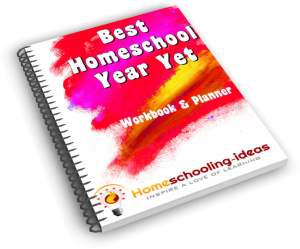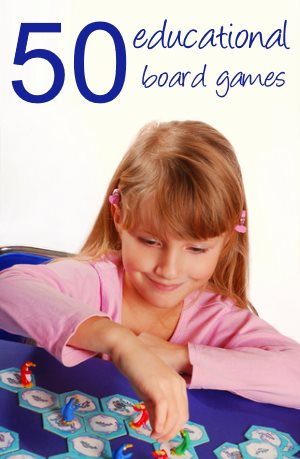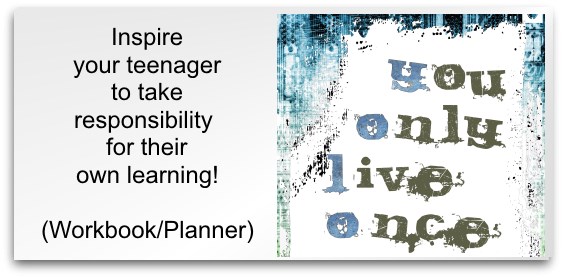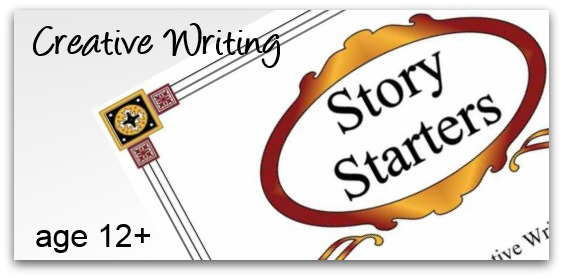Expanding Your Good Parenting Skills with Unconditional Parenting
Home >> Start Homeschooling >> Good Parenting Skills
Start Homeschooling Yourself First!
Homeschooling is not just about you using your good parenting skills to teach your children how to spell, read and write.
As you can probably imagine, there are also other more basic goals to homeschooling some of which have to do with guiding your kids through life and empowering them into becoming happy, caring and conscious adults. You may call it an education in becoming well-rounded human beings!
The way that I see it, some of the obvious benefits when you start homeschooling are that you are in full control of your children's education in developing their good human qualities - like stimulating their inborn sense curiosity, fuelling their love for questioning, and not to forget - empowering them to follow and live out their personal ideas, interests and passions without the pressure of their constantly being externally evaluated and judged - something which most traditional school systems tend to do unfortunately.
Now, I have to be honest and say that I'm no expert on homeschooling!
However, I do know something about parenting in general, good parenting skills and child parent relationships which may help and inspire you in your homeschooling efforts as well.
What You'll Get Here:
Deep Insights into 3 Powerful Parenting Styles
My purpose here is actually really simple: I just want to empower you by helping you bring out the best in yourself and your children.
And the way I hope to do that is to speak about parenting and good parenting skills a bit from above.
So rather than providing you with concrete discipline suggestions and parenting techniques, I wish to take parenting a step further by presenting overall ways to approach parenting - and therefore also homeschooling - in general.
And now a small warning might be in place: I might provoke you by messing a bit with your parenting ideas and convictions - sorry about that - but if you're up for 'homeschooling yourself' by raising your general awareness and sharpening your self-reflection, please, continue and enjoy the ride.
So without any further ado, here is what you'll have good insights into when you've finished reading this article about good parenting skills:
• Good parenting skills strategy no. 1: Unconditional parenting and what it means to love unconditionally.
• Good parenting skills strategy no. 2: Positive parenting and what I call the mirror effect.
• Good parenting skills strategy no. 3: Attachment parenting and the power of pure presence.
Unconditional Parenting
Showing Your Kids That They Are Loved for Who They Are Rather Than What They Do!
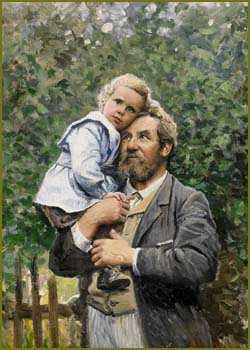
Without hesitation most parents will honestly declare that they love their children unconditionally.
This is most likely true. They probably do!
The issue I'm addressing does not concern our beliefs as parents. It's not about how we think and feel about our children.
No, I'm interested in how we ACT and how we in practice relate to our children.
From the bottom of our hearts we feel we love our children unconditionally, but do we actually show it to our children?
Because 'unconditionally' means, well ... 'unconditionally'!
It means showing our love with no strings attached - that our love is not dependent on anything!
Now that, my dear reader, is another question altogether!
Because actually living out our belief of loving our children unconditionally means showing our children unconditional love and support no matter how they behave.
This consistency in showing acceptance of our kids regardless of their behavior is at the core of the rather radical but very inspiring parenting philosophy of unconditional parenting as it is formulated by its founder Alfie Kohn.
One of the reasons why Alfie Kohn feels so strongly about parenting with unconditional love is that feeling unconditionally loved sets your child free to be whoever he or she is without being concerned if what he or she is, is good enough.
This complete acceptance of all the sides of your child's personality lays the strong foundation for your child's full growth.
Therefore complete acceptance and unconditional love are some of the most important good parenting skills in our parenting toolbox.
If your child feels unconditionally loved he or she doesn't have to be concerned with trying to please you or, worse, change himself or herself, in order to 'earn' your affection and approval.
Unconditional Parenting Refrains from Any Kind of Control or Manipulation ... Yes, Any Kind!
Alfie Kohn strongly opposes the controlling of children in any way shape or form.
Now why is that?
It's because the controlling children e.g. by the means of punishments and threats but also more subtle manipulation like praise - may give our children the idea that our parental love is conditional! That our affection and attention can be bought!
Meaning that our showing love is dependent on how they behave and how they live up to our preset standards.
For instance, a threat may take form of, "If you don't do sit down and read or do your homework, Mom and Dad will not watch a film with you later". This threat is basically using love and bonding as hostages that will be released if the ransom is paid.
A expression of praise may take the form of, "If you do your homework, you're a good boy". Despite the obvious good intention of making the child feel good, the praise actually turns expressions of love and acceptance into rewards which basically means that love is conditional - "You have to work to get it!".
So provocatively speaking threats as well as praise are manipulation strategies that use the prospect of love as a control tool.
So What's the Problem with Conditional Love?
Now, what's the problem with showing conditional love, you might say. Aren't punishments, threats and rewards the best way to teach a child right from wrong?
Yes, these strategies might be efficient ... short term!
Yes, out of fear your child may quickly learn 'proper' behavior and develop an obedient attitude but are those 'skills' qualities that you really want for your child ... long term? Proper behavior out of fear?
What if your child had no fear?
What if he or she knew that even when he or she screwed up, disobeyed, threw a tantrum etc., there would still be a showing of love and acceptance?
What if your child felt that he or she was accepted no matter what?
Now, that would be powerful because fear is the greatest hindrance to full growth and living out inner potentials.
Often we're afraid to express our feelings, to let out steam, to go where no-one else have gone because what if the consequences are that we will lose love and support - elements that are so important for our wellbeing.
Making sure that love is always there no matter what is the real forte of the good parenting skills of unconditional parenting.
Does Unconditional Parenting Mean Complete Chaos, Giving in and No Rules?
Unconditional parenting may sound very well, you may say, but does it mean that our child is allowed to do anything as he or she pleases? That we just stand back and let things happen? That there are no boundaries for anything?
No that's not what it means. No boundaries and no limits are not in the best interest of your child and are therefore not part of the good parenting skills package.
Besides making life easier for us, the parents, predictability and structure also lay the foundation for installing a basic sense of security in your child. A security that in time will lead to healthy independency.
Saying no and setting certain rules is something we all have to do which is not necessarily fun.
However, if we present limitations to our child with a deep presence and prepare ourselves for remaining supportive and accepting when our child lets out his or her emotional reactions, our child will know that, "This is how things are and I'm still accepted even when I emotionally present my opinion."
To take good parenting skills and human existential homeschooling goals a bit further, here is a question that you may ask yourself:
• What human abilities, strengths and basic life skills do I want my child to have when he or she becomes an adult?
(Here are a few suggestions to trigger your brainstorming: high self esteem, high level of personal awareness, consideration, empathy, strength in sharing emotions, a reflective mindset, good communication skills, tolerance, an understanding nature, finding intimacy natural, etc.)
This was a rather long section on unconditional parenting and good parenting skills.
The next section in this good parenting skills article is much shorter and here I will present you with what I think is the best technique ever to help your child develop an open, positive attitude to life and people.
Positive Parenting
Using the Power of the Mirror Effect Rather Than Formal Lecturing
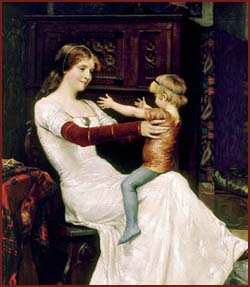
I have good news for you, you don't have to teach your child good behavior, you can just use yourself as an example.
Yes, I know that may sound trivial or farfetched but your presence as a role model, is much, much more powerful than any kind of lecture on behavior you can give your child.
You see, to your child, you're like a mirror. And basically it works like this:
When your child looks at you, your child intuitively sees himself or herself in the energy you emit. And in my experience, the younger your child is, the more powerful the Mirror Effect is, too.
Also if you're showing full acceptance of your kid, your kid will instantly feel this in your presence and now, moving on to the big point, reflect it back onto you. Yes, you receive what you give!
Being aware of this reflection backwards and forwards is what I call positive parenting with the Mirror Effect.
Yes, in Theory the Mirror Effect is so Mindbogglingly Simple
However, in practice it does require will and determination and a certain level of self awareness because whatever you present your child with: your mood, your energy, your patience, your acceptance, your support etc. will lay the basis of what your child will give back to you.
In this way you are a role model to your children purely via your beingness and ... whether you want to or not.
So why not make the best of it!
Why not use it consciously as part of your good parenting skills backpack.
It's actually really only a matter of choosing what you want for your child and BEING that yourself.
First you choose what you want (tolerance, acceptance, understanding, making room etc.) and then you become it!
Very simple logic ... and it works. At least it does for me!
In the next section I will dive more into the good parenting skills of providing deep presence or pure beingness!
Attachment Parenting
Using the Power of Pure Beingness
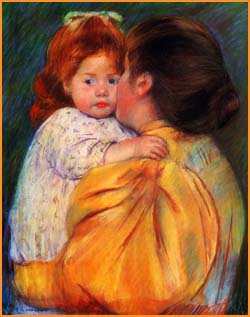
Attachment parenting is a powerful parenting philosophy coined by the famous parenting expert Dr William Sears.
Basically attachment parenting is the most simple parenting style around. In attachment parenting your good parenting skills consist mainly of your intuition, your gut and heart.
In this way attachment parenting is really about the good parenting skills of close bonding and tuning in - some of the most basic ways that you can relate to your child.
According to Dr. Sears practicing attachment parenting provides you with the most direct route to getting to really know your child. And knowing your child is essential to finding out what it is your child needs.
This knowledge of knowing what your child needs is so very important when it come to deciphering his or her behavior: E.g. why is my child so angry or why does my child misbehave in this situation?
You see, my experience tells me that behind any kind of 'misbehavior' there is an unmet need. And the need is typically very, very basic like the need for attention, acceptance, exploration, assertion of will, to have a say, to be understood etc.
So the strength of attachment parenting is that you use your ability to tune in in order to go behind the behavior (the crying, the screaming etc.) in order to find out what the real need is and see if you can meet it.
How to Tune in and Become Pure Beingness
This is all very well, you may think, but how do I tune in?
Tuning in can be difficult especially if you're tired or stressed because tuning in means becoming 100% present right here, right now with your child.
It means putting away your brain on a nearby shelf with all its mental stuff of ideas, stress, planning, reflections, concepts, rules, norms etc.
Okay then, but how do you know when you're fully present?
Well, you're just there!
You're there with a genuine feeling of acceptance and love - knowing that everything is alright and that there's really nothing wrong with anybody or anything.
When you're fully present, you have an opportunity to bond and feel your child which paves the way for you receiving insights into what it is your child needs.
Perhaps it's as simple as a hug and feeling your calmness, perhaps your child just want to have some sort of say of what is going to happen to him or her, perhaps your kid is just tired and needs to sleep, perhaps your child is bored and therefore restless.
Often what your kid says he or she wants is not the same as what he or she needs. Your child may want to stay up late even if he or she is completely exhausted but what maybe what your child needs is some degree of say in how to go to bed. In other words, perhaps it's a question of autonomy.
We're not Always Successful but We Can Do Our Best
Sometimes we may be to too tired or too stressed to become pure Beingness to sense what it is our child needs - this happens to all of us.
But then we can always just try to meet one need after the other and at some point with a bit of luck we will meet the right need.
And if we still can't meet the need, well, we've done our absolute best!
And here's another thing about pure Beingness: Not only will your full presence help you find out what your child needs, the power of your beingness, your full presence, is healing in itself.
Yes, it is because the feeling of a parent's full Beingness is characterized by full and complete acceptance and unconditional love.
And really, for a kid, what beats that!

Many thanks to Birgitte of Positive-Parenting-Ally.com for this wonderful post. I am sure it will help you start homeschooling in the best possible way.
Go to Start Homeschooling from Good Parenting Skills
Go to Homeschooling Ideas Home from Good Parenting Skills
Lovely messages sent from visitors like you:
Oh my goodness! I am a home schooling mum of 4 and I have NEVER found a better site! Thank you so much.
Blessings, Jenny (New Zealand)
I wanted to say THANK YOU for your fabulous website. I found your website, and finally I have the confidence to take the plunge and take my daughter out of school and educate her at home, thank you, thank you.
Marina (UK)
I cannot get over how much great information and super ideas you have here. Fantastic!
Ruralmama (USA)
This is simply fabulous!! I just now found this site and I'm so excited!! The opportunities and suggestions as well as the need to inspire are exactly what I have been searching to fulfill!! I'm so thrilled to get started and even more excited to continue to explore all of the fabulous suggestions and creative ideas you have offered here!!! Thank you, thank you, thank you!
Jennifer (USA)








